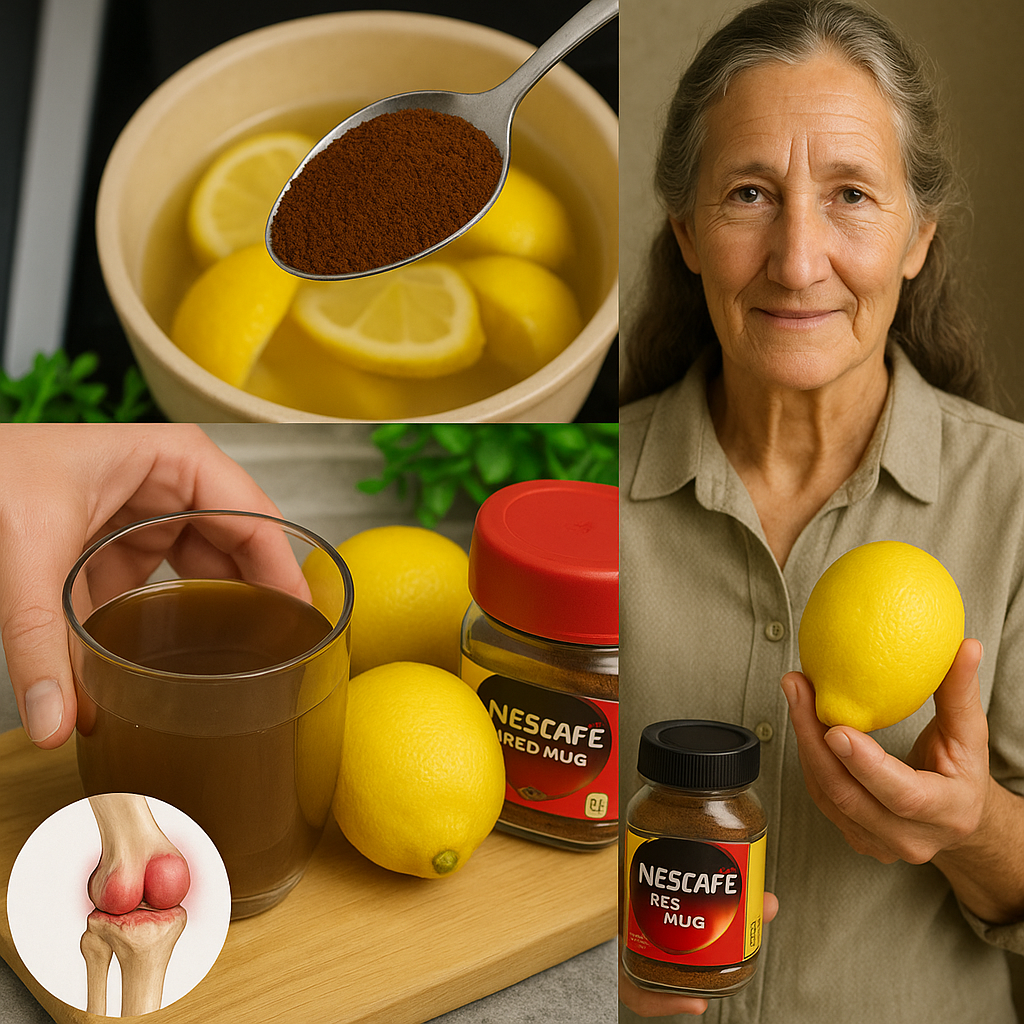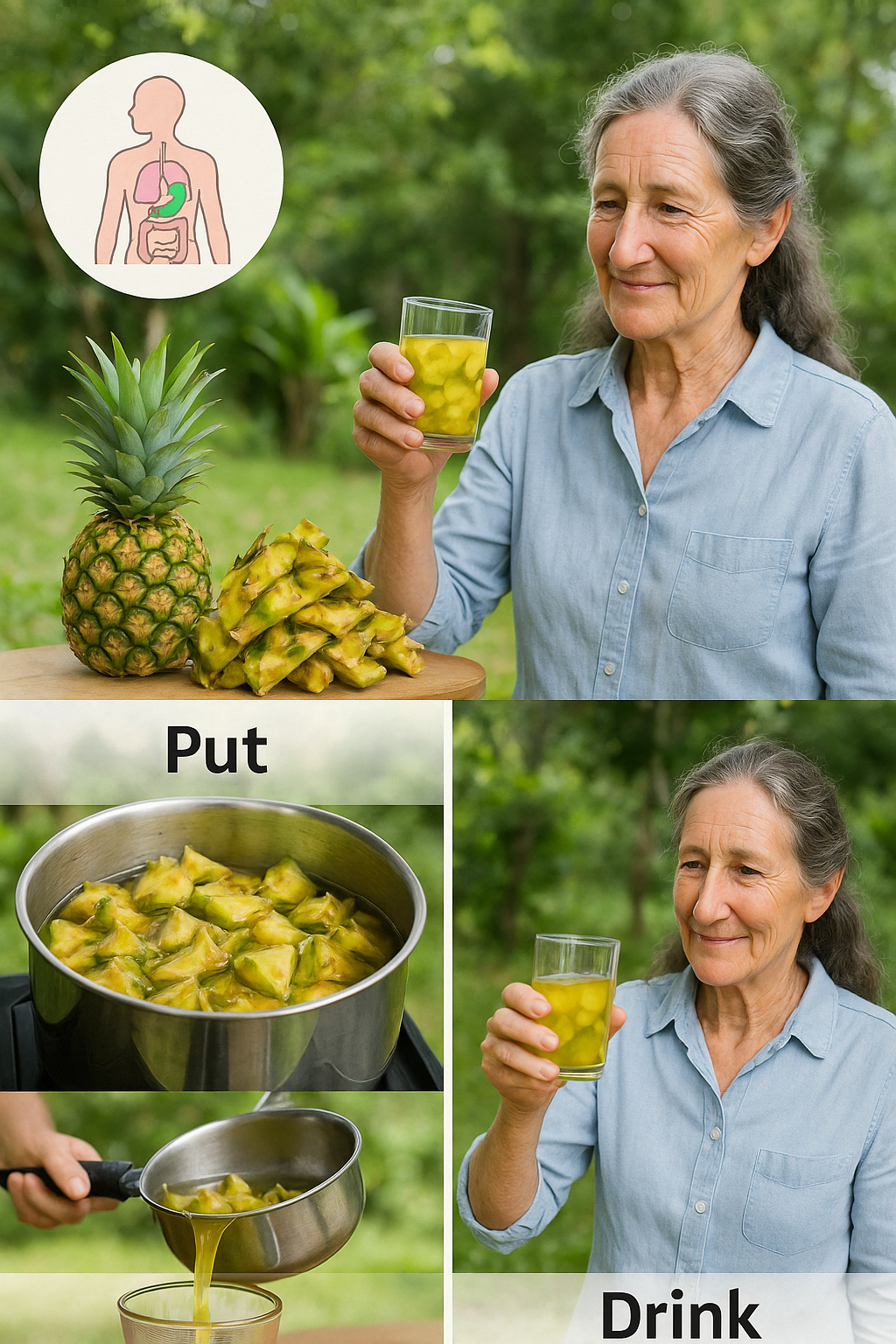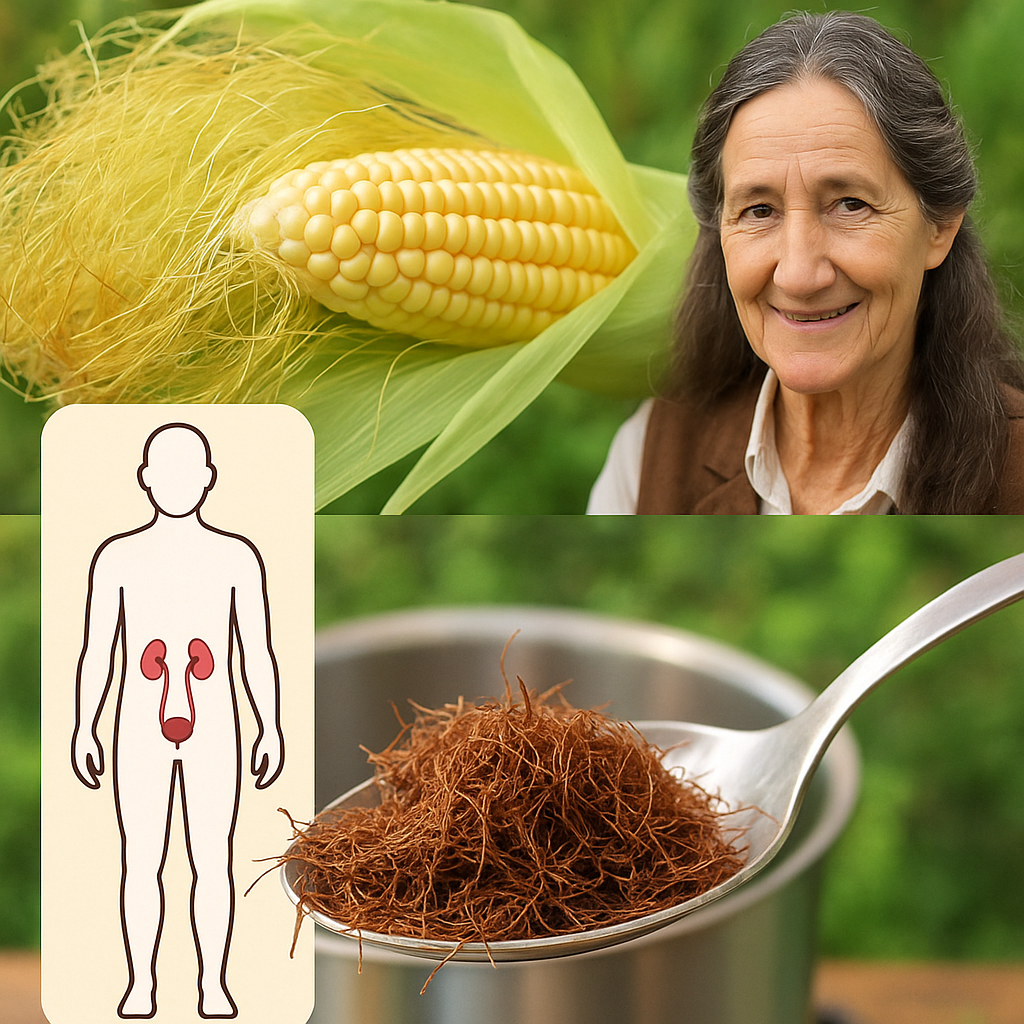What if the “weeds” growing wild in your backyard were actually some of nature’s most powerful healers? Most people pull them out without a second glance, unaware that these resilient plants—often dismissed as nuisances—are loaded with nutrients and therapeutic compounds.
In reality, many so-called weeds are time-tested herbal remedies with a long history in natural medicine. From liver detox and wound healing to heart support and inflammation relief, the following four plants deserve a second look. Let’s uncover the powerful potential of dandelion, purslane, plantain, and yarrow—four backyard heroes hiding in plain sight.
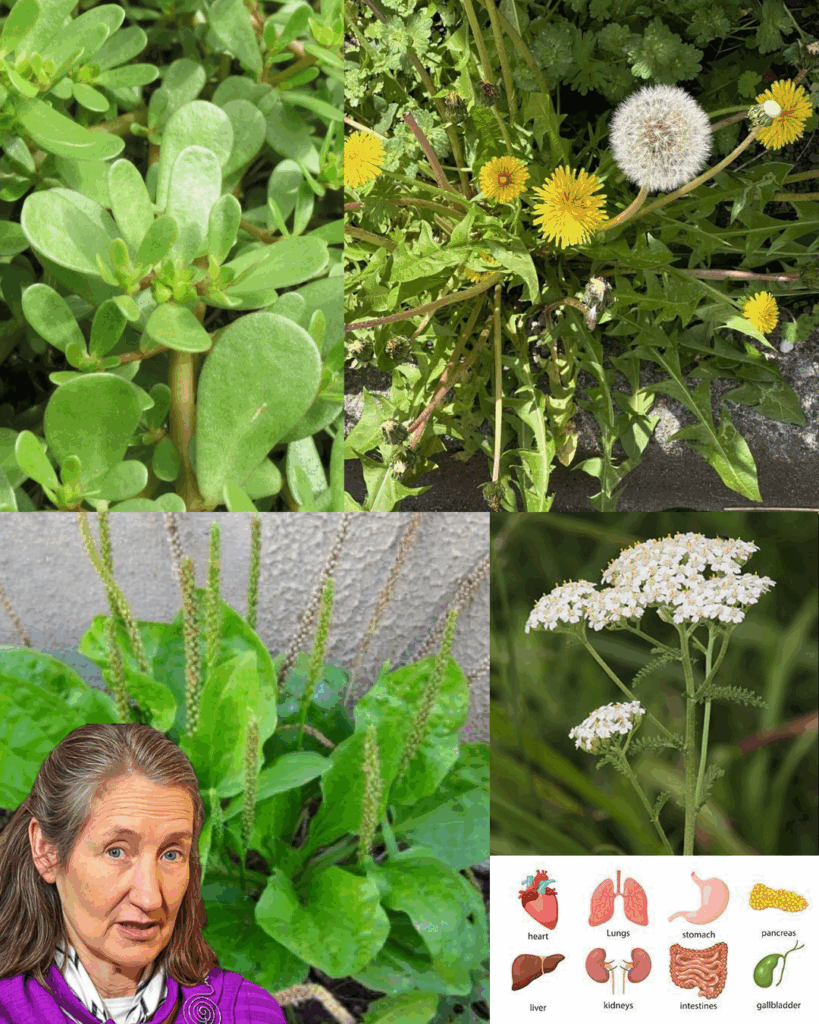
🌼 Dandelion (Taraxacum officinale) – The Detox Powerhouse
That bright yellow flower you’ve seen overtaking lawns is more than a garden pest. Dandelion is a complete wellness tonic with deep roots in herbal traditions.
Key Benefits:
- Liver Detox: Stimulates bile flow and supports natural detoxification.
- Digestive Aid: Acts as a gentle diuretic and reduces bloating.
- Blood Sugar Balance: May help regulate glucose levels.
- Skin Support: Anti-inflammatory properties can soothe acne and eczema.
- Bone Health: High in calcium, magnesium, and vitamin K.
How to Use:
- Tea: Steep dried roots or leaves for a cleansing liver tonic.
- Salads: Add young, tender leaves to boost the nutritional value of your greens.
- Topical Paste: Crushed leaves can be applied to pimples or rashes.
💡 Did you know? Dandelions contain more beta-carotene than carrots, making them great for eye health too.
🌿 Purslane (Portulaca oleracea) – The Omega-3 Secret
It grows in cracks, along sidewalks, and in untended gardens—but purslane is one of the most nutrient-rich wild plants you can find.
Key Benefits:
- Omega-3 Fatty Acids: One of the best plant sources of ALA for heart and brain support.
- Anti-Inflammatory: Reduces systemic inflammation naturally.
- Antioxidant-Rich: Contains glutathione, vitamin E, and beta-carotene.
- Weight Friendly: Low in calories but high in fiber and hydration.
- Wound Recovery: Promotes faster skin healing.
How to Use:
- Raw: Add to wraps or sandwiches for a tangy crunch.
- Smoothie: Blend with cucumber, lemon, and apple for a refreshing drink.
- Stir-Fry: Sauté with garlic and sesame oil as a mineral-packed side.
💡 Purslane contains more magnesium than kale and more potassium than bananas.
🌱 Broadleaf Plantain (Plantago major) – The Skin and Gut Soother
You’ve probably stepped on this plant without knowing it. But plantain is one of the most effective natural remedies for external wounds and internal inflammation.
Key Benefits:
- Wound Healing: Reduces infection and accelerates tissue repair.
- Respiratory Relief: Loosens phlegm and soothes coughs.
- Digestive Support: Useful for both diarrhea and constipation.
- Anti-Bacterial: Protects against skin infections and rashes.
- Immune Boost: Packed with vitamin C and antibacterial agents.
How to Use:
- Poultice: Crush fresh leaves and apply directly to bug bites, blisters, or burns.
- Tea: Drink to soothe the gut or respiratory tract.
- Infused Oil: Combine with olive oil to make a healing salve.
💡 Plantain seeds are also edible and high in fiber—great for gut health.
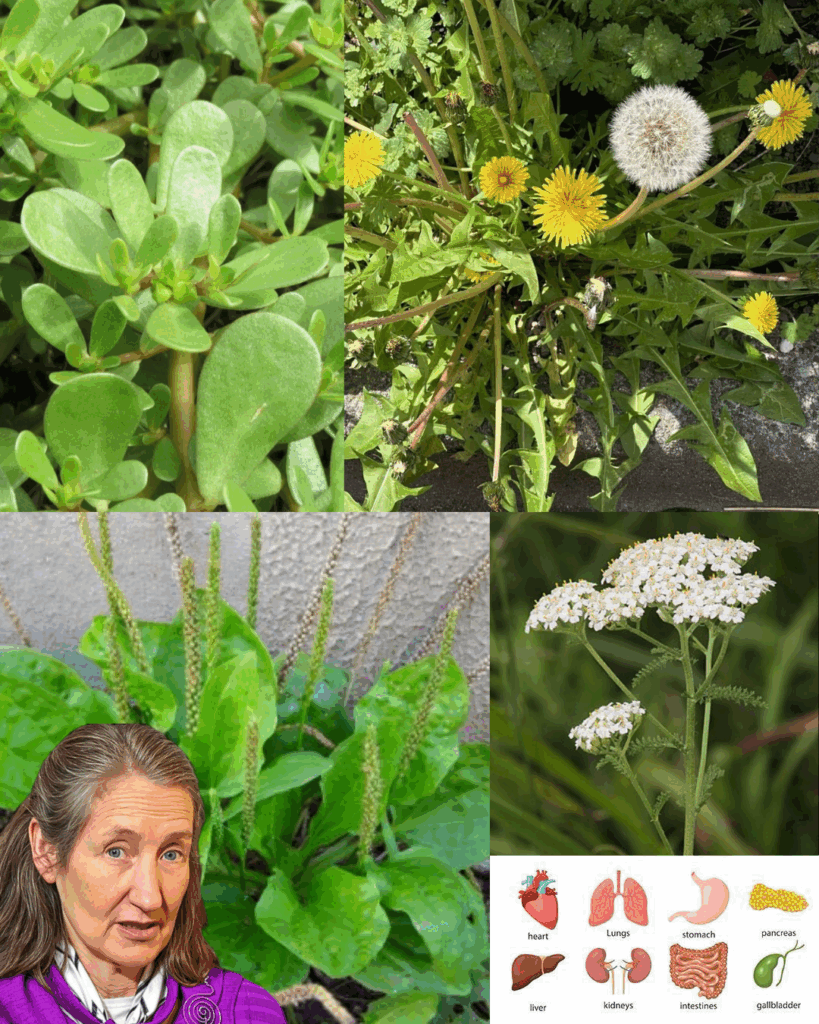
🌸 Yarrow (Achillea millefolium) – The Circulation Hero
Named after the Greek warrior Achilles, who reportedly used it to treat battlefield wounds, yarrow is a multi-purpose herb that supports circulation, reduces pain, and soothes inflammation.
Key Benefits:
- Stops Bleeding: Naturally astringent—promotes clotting and wound repair.
- Relieves Fever: Encourages sweating to bring down body temperature.
- Supports Menstrual Balance: Helps regulate heavy periods.
- Aids Digestion: Reduces cramps, bloating, and gas.
- Stress Relief: Mild sedative effects promote calm and rest.
- Cold Fighter: Eases congestion and speeds recovery.
How to Use:
- Tea: Sip hot yarrow tea to break a fever or ease cramps.
- Compress: Use as a topical treatment for bruises or inflamed skin.
- Tincture: For cold symptoms, combine with elderflower or peppermint for stronger effect.
💡 Yarrow is also a pollinator-friendly plant, attracting beneficial insects to your garden.
🌿 Final Thoughts: Reclaim the Wild Wellness Around You
Before pulling that “weed,” consider this: nature might be offering you free medicine. These four plants—dandelion, purslane, plantain, and yarrow—are more than just garden invaders. They’re nutrient-packed, therapeutic allies with centuries of use in herbal medicine.
When used wisely and with respect for your body, they can support detox, digestion, circulation, and immune balance—all from plants growing just outside your door. Instead of spraying them away, try harvesting and harnessing their power for natural, everyday wellness.
💧 Let the wild work for you. Next time you see these green gems—don’t pull, pick.
